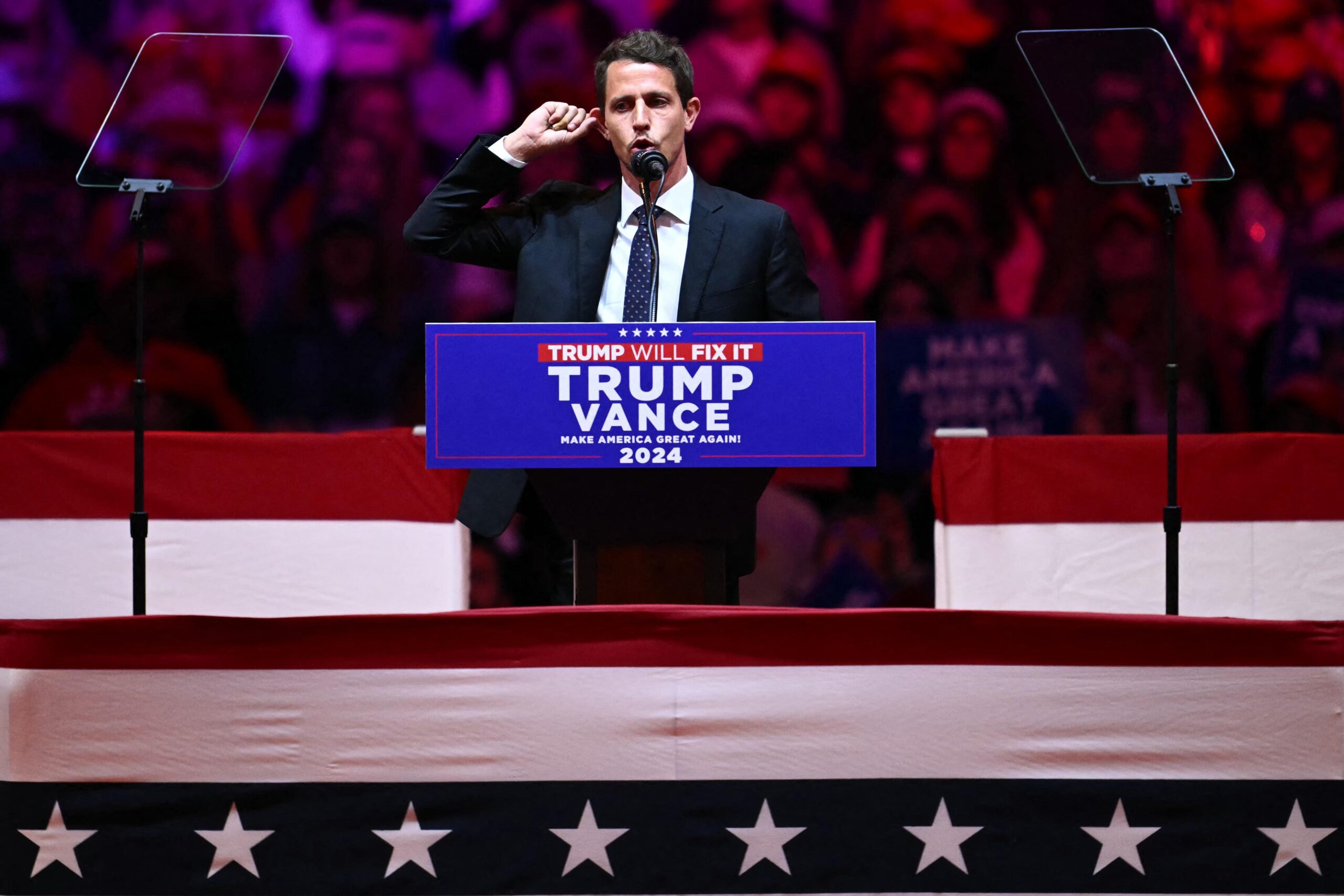Politics
900,000 Puerto Ricans in Swing States Respond to Racist Joke

Tony Hinchcliffe’s controversial joke at a recent Trump rally, where he referred to Puerto Rico as “a floating island of garbage,” has sparked significant outrage among Puerto Rican voters. Camille Rivera, a board member of La Brega y Fuerza, a national advocacy organization for Puerto Ricans, expressed that such statements are not surprising but are nonetheless appalling, especially as they target independent Puerto Rican voters who may be undecided.
Puerto Rico, although a U.S. territory, has a unique relationship with the mainland. With millions of Puerto Rican voters now residing in various states, including around 900,000 in key swing states like Pennsylvania, both political parties are intensely vying for their support, particularly in light of recent election cycles.
Hope Alfaro, a Puerto Rican voter in North Carolina, shared her thoughts on the broader implications of Hinchcliffe’s remarks. Having grown up in a Puerto Rican family, she felt immediate shock upon hearing about the joke, initially hoping it was taken out of context or not endorsed by the campaign. Alfaro noted the irony of such a comment being permitted just before an election, as it would likely alienate a significant demographic of voters.
She emphasized how Puerto Ricans, proud of their identity, could take offense at such direct insults. In her view, those who were undecided or moderate Trump supporters might feel pushed away by the comedian’s comments, which paint a broad and negative portrayal of their homeland. Alfaro acknowledged the complexity for those who identify as Latino Trump supporters; they often might overlook such comments if they feel strongly aligned with other Republican policies.
Alfaro also pointed out a notable absence in outreach from both parties towards Latino voters in North Carolina. Although younger voters, especially those with Puerto Rican roots, are critical, they have not felt a concerted effort from politic campaigns to engage them meaningfully. Political outreach has largely neglected the necessity of directly addressing their specific cultural and communal needs.
In the wake of fostered disillusionment, figures like Bad Bunny can play a pivotal role in bridging the political divide. Alfaro mentioned that Bad Bunny’s influence among younger Latinos might inspire greater political engagement and awareness regarding issues affecting Puerto Rico, particularly as they relate to statehood and economic stability.
As election day approaches, Alfaro underlined a major concern: the political parties’ failure to truly listen and cater to the complexities of Puerto Rican voters’ experiences. This disconnect is notable considering that many Puerto Ricans were displaced after Hurricane Maria, looking for better opportunities on the mainland but still hoping to have their voices heard.
The political landscape is changing, and it is imperative for campaigns to create messaging that resonates with Puerto Rican voters, appealing not only to their votes but also to their lived experiences. Authentic engagement and acknowledgment of their unique identity as U.S. citizens could make a significant impact in deciding the upcoming election. However, without genuine efforts of connection and outreach, many first-time voters and long-time residents may continue to feel overlooked and disenchanted, leading to potential disengagement from the electoral process.
